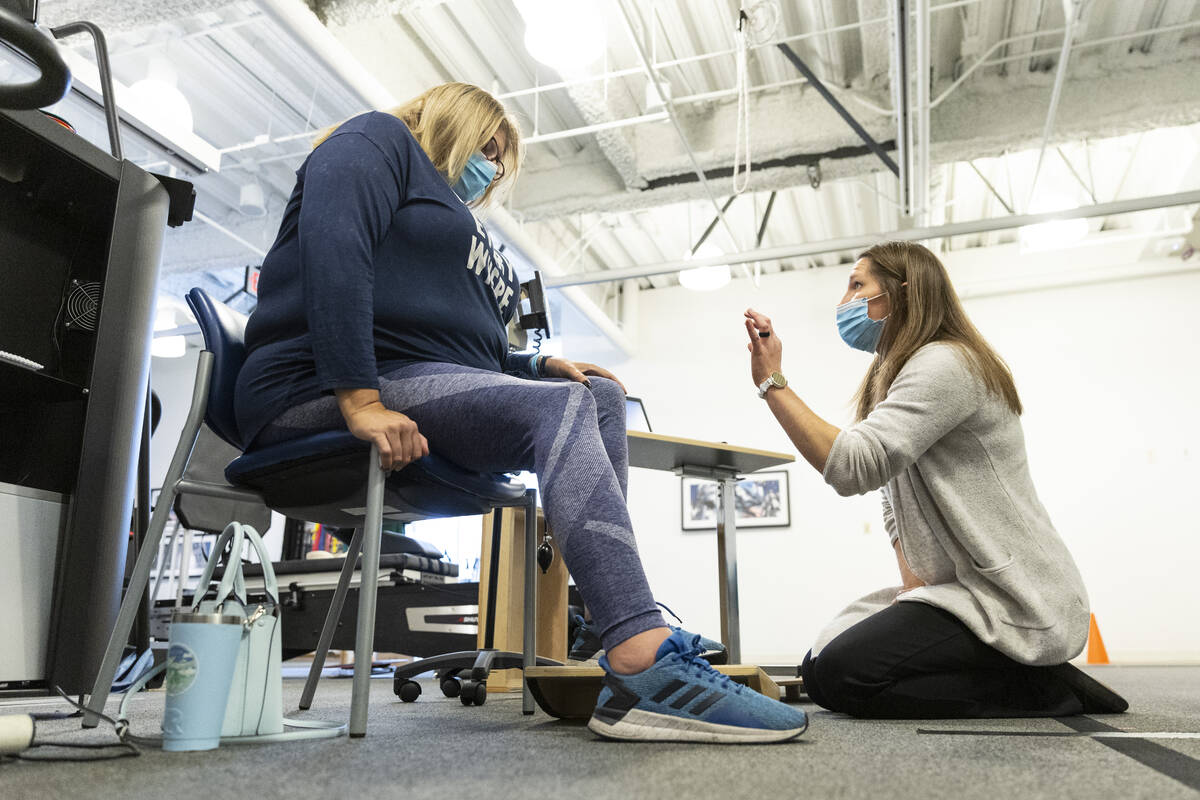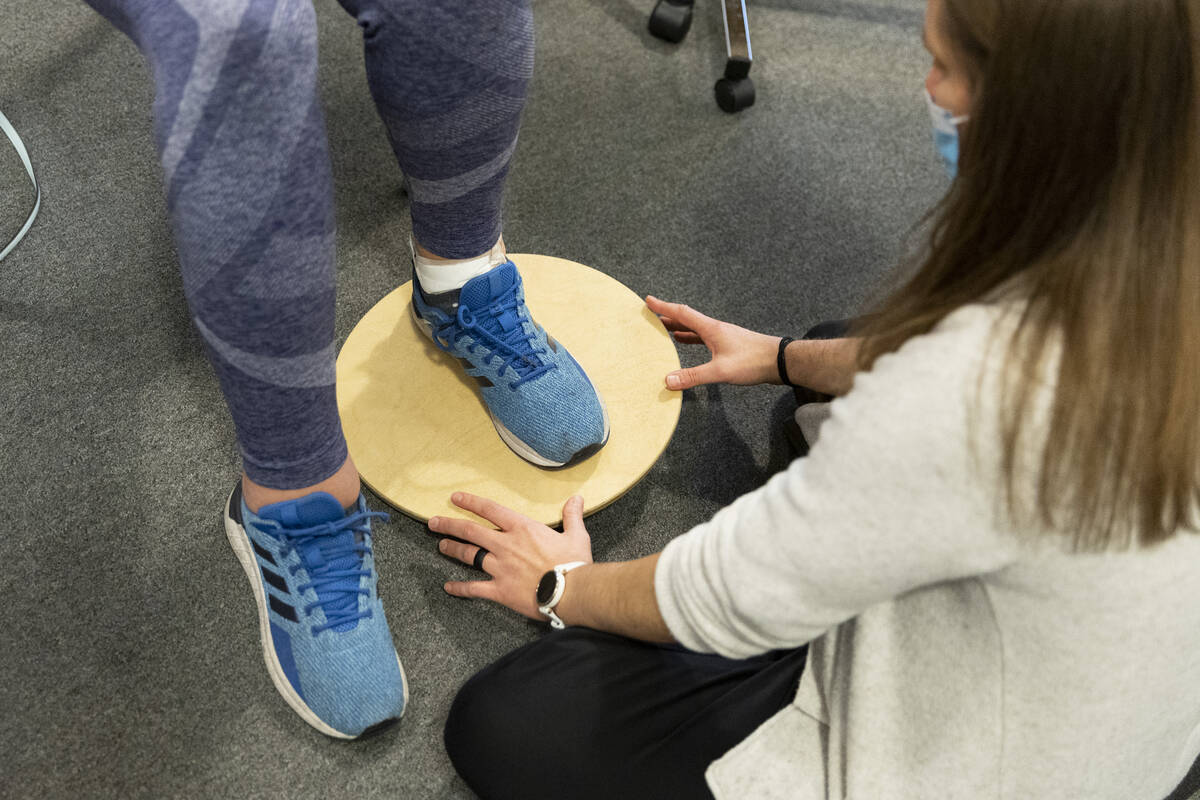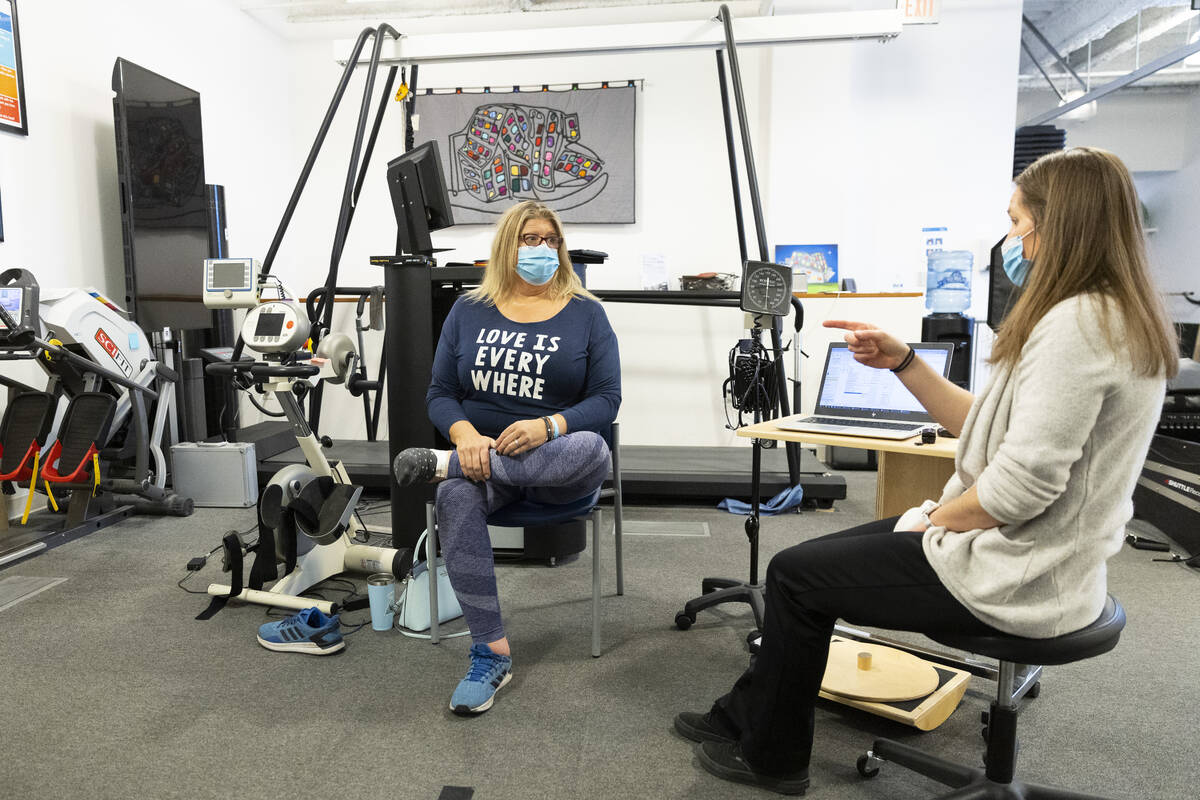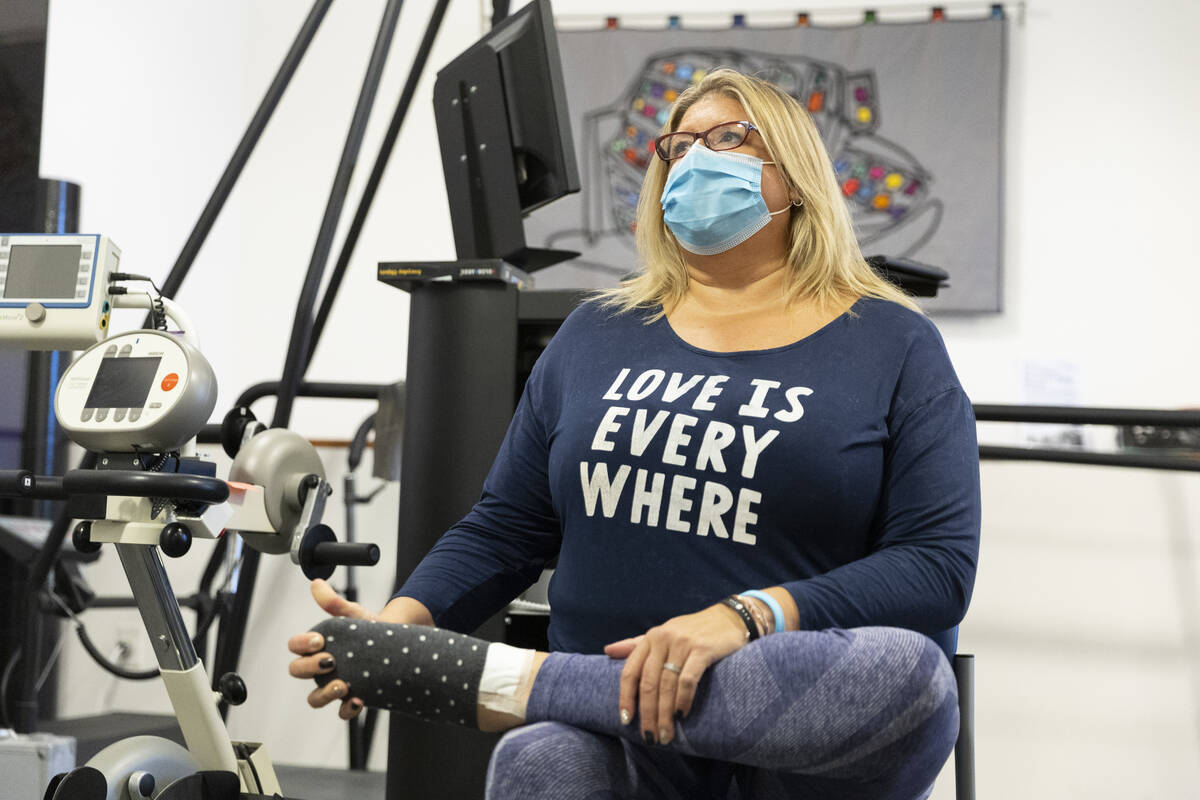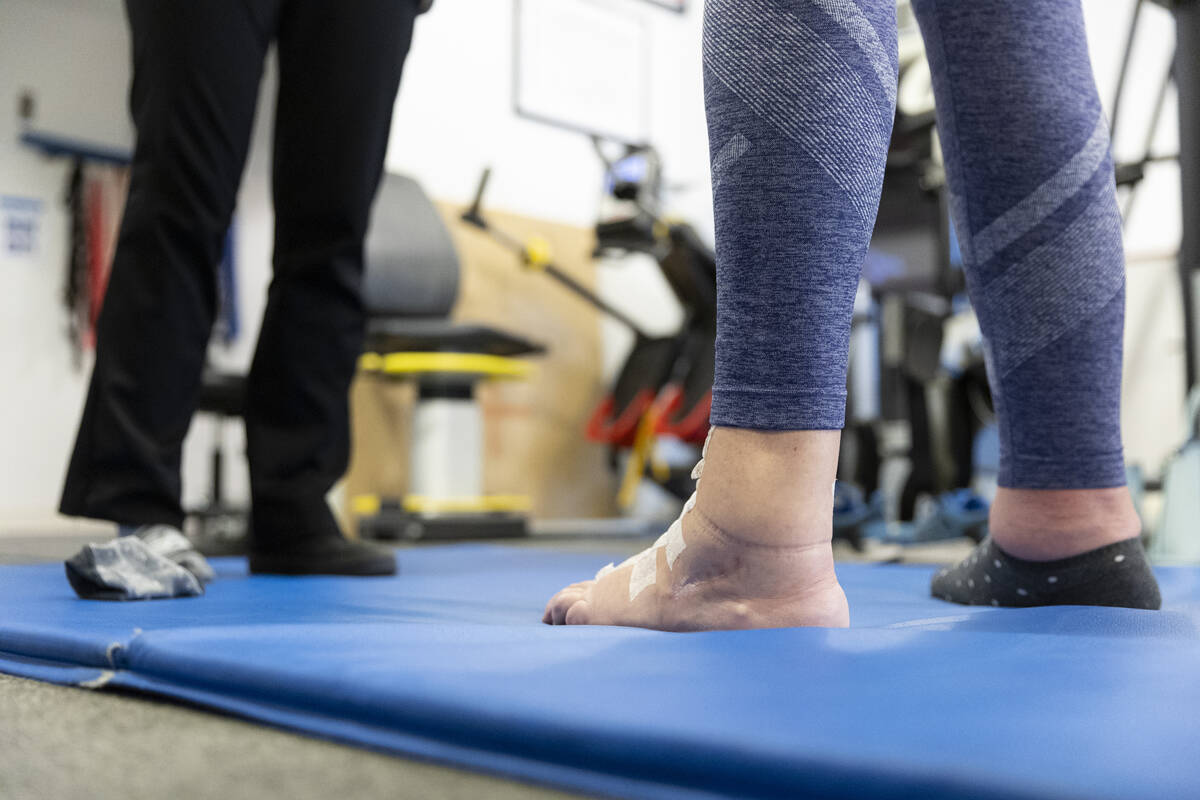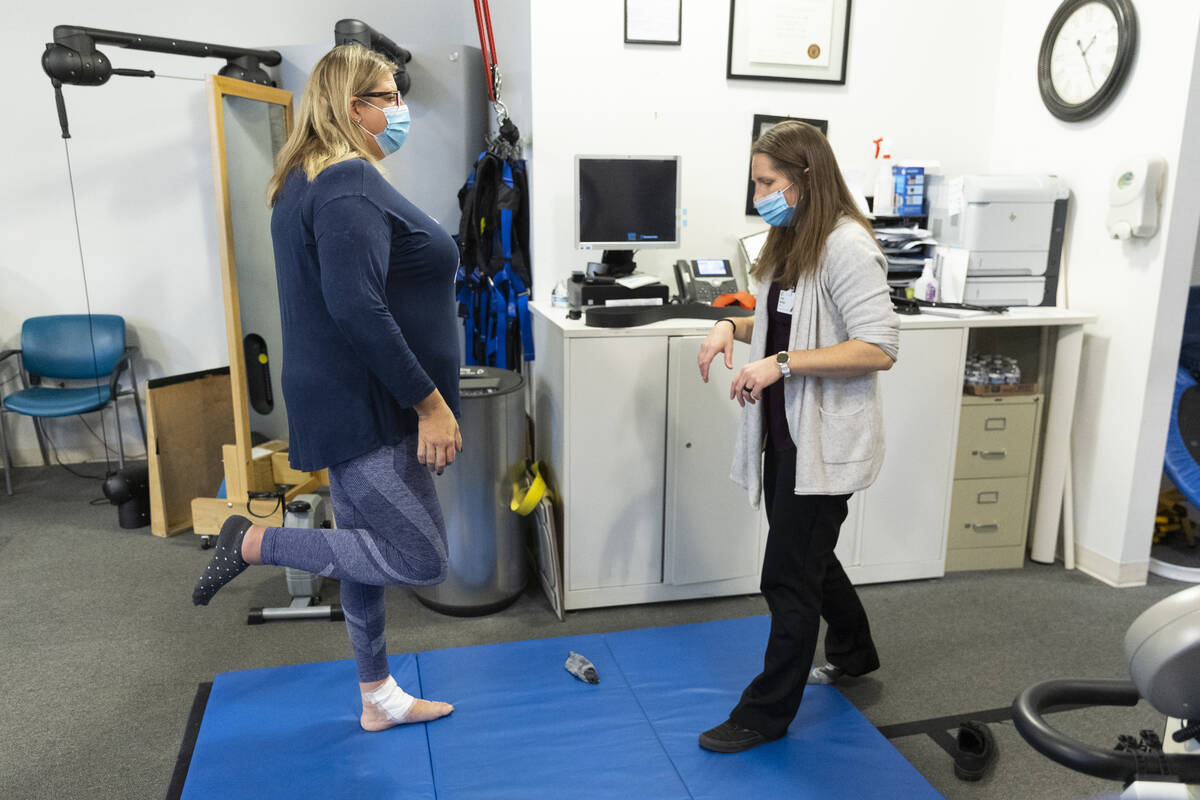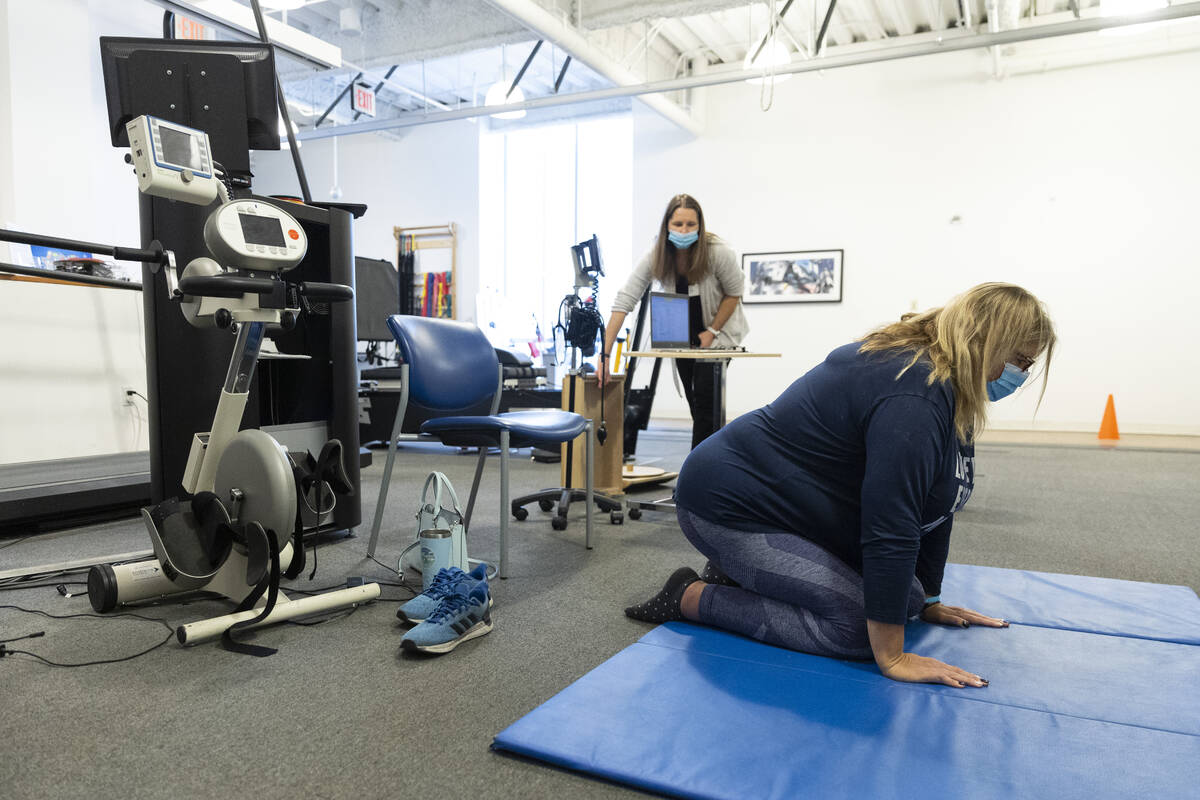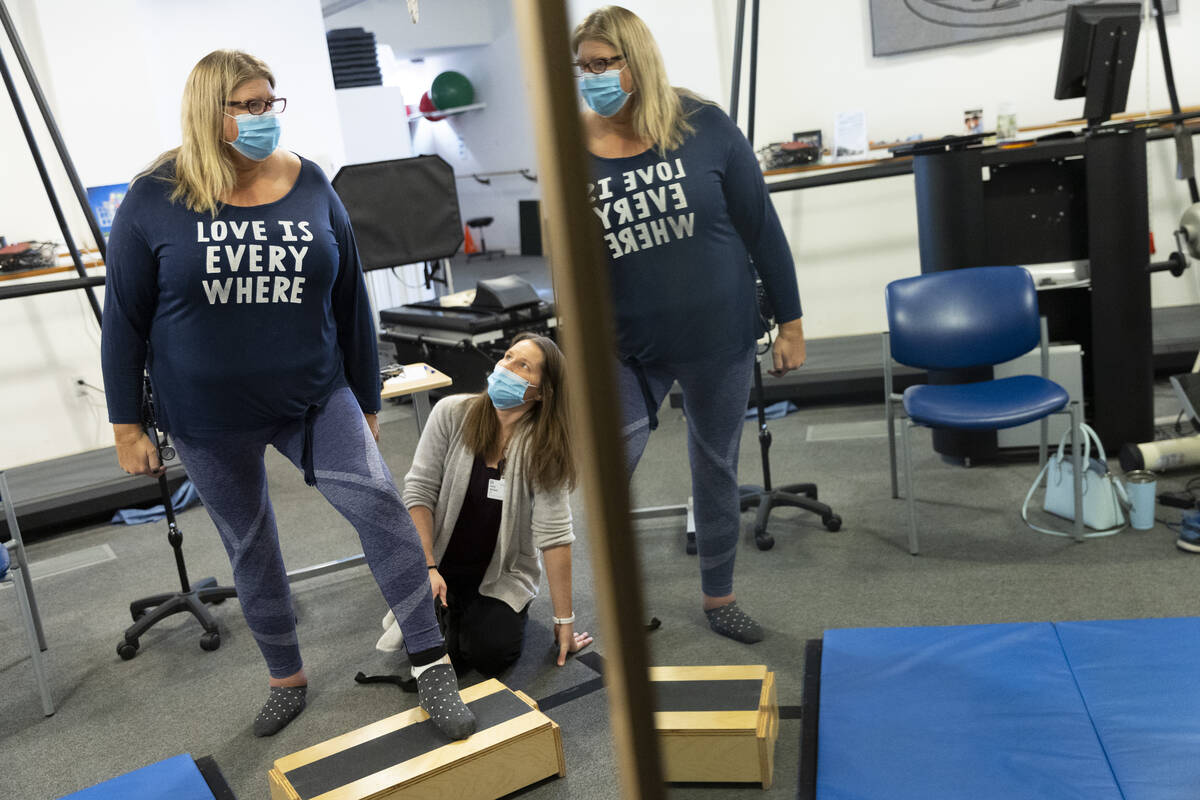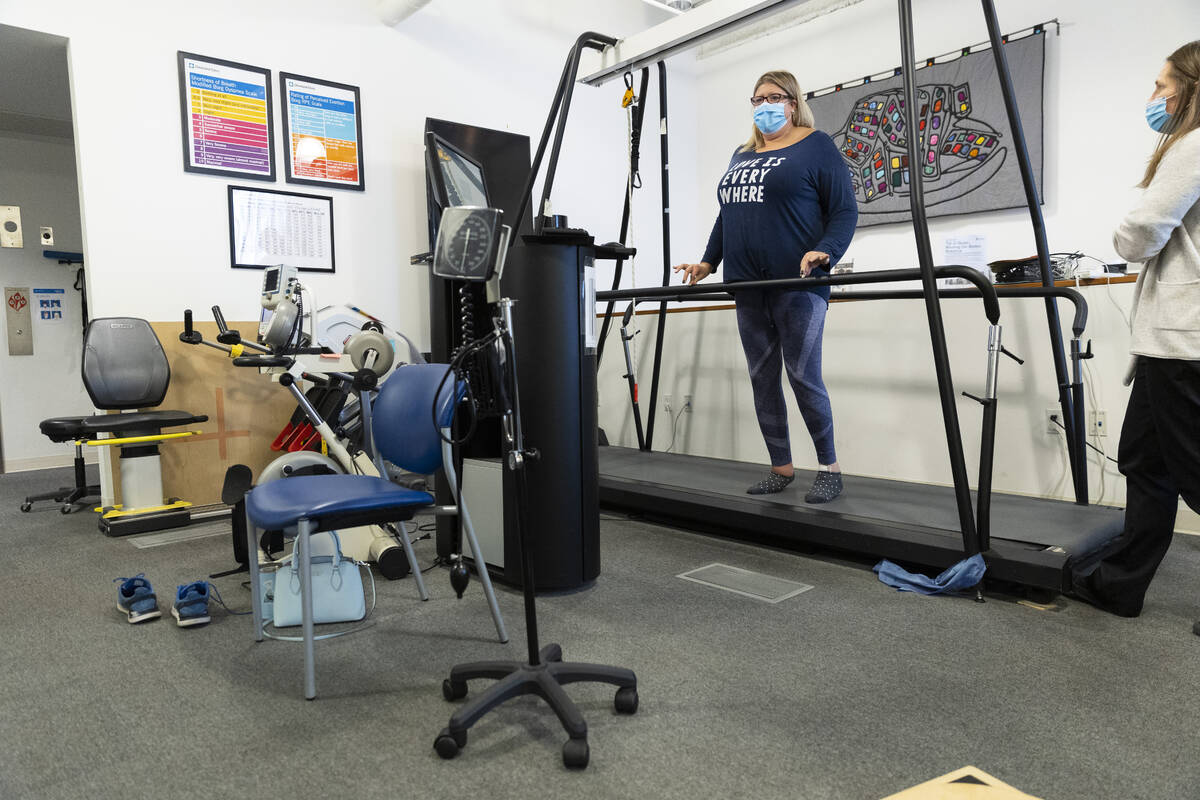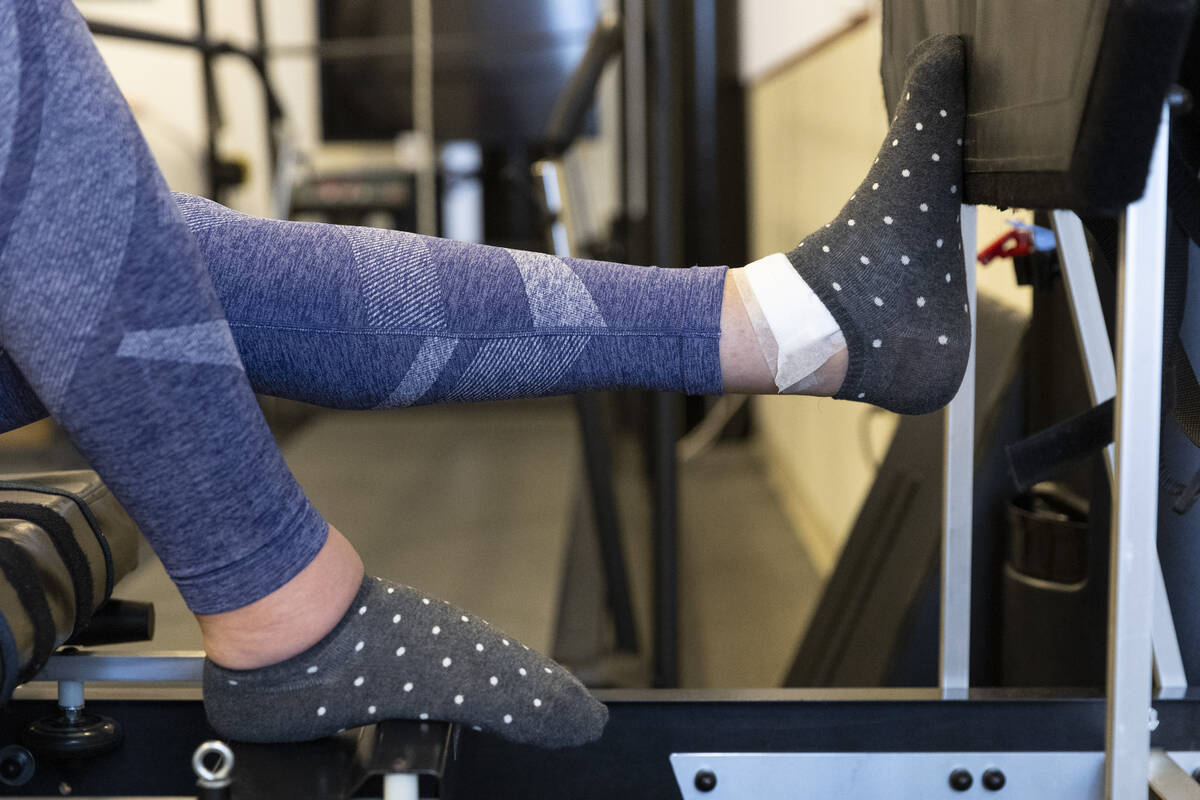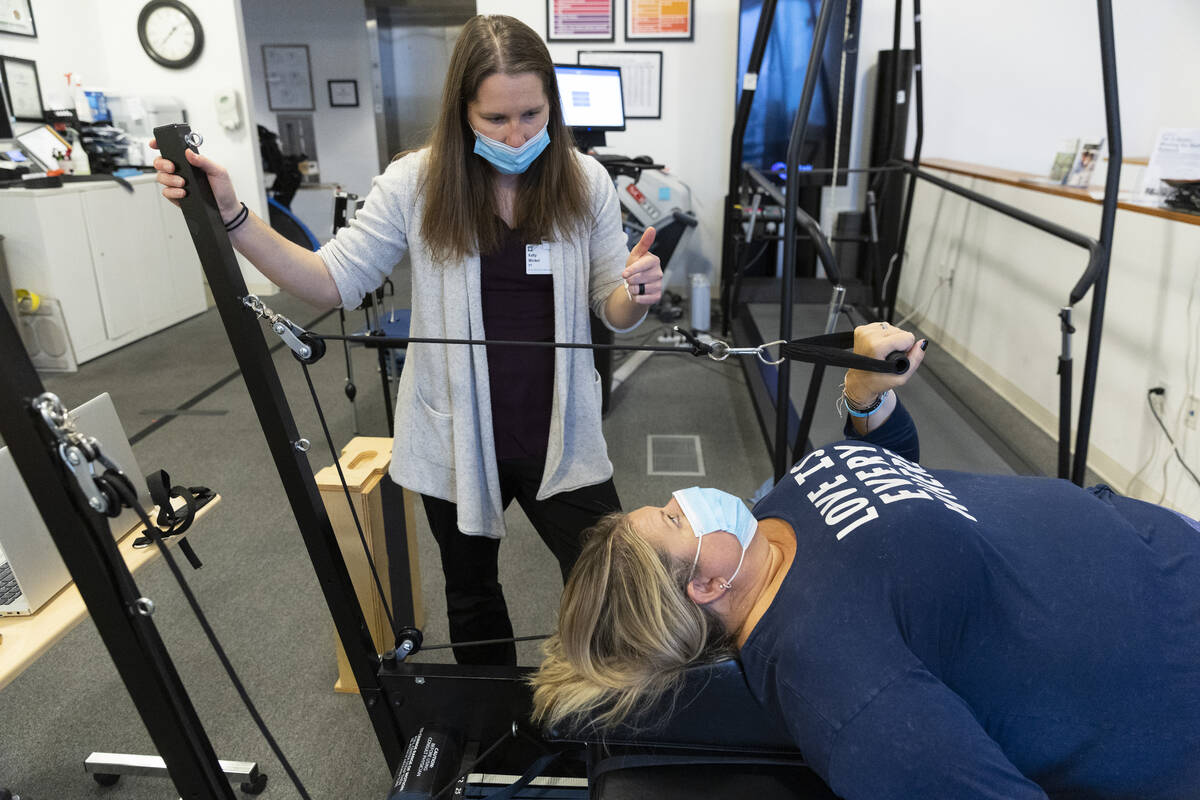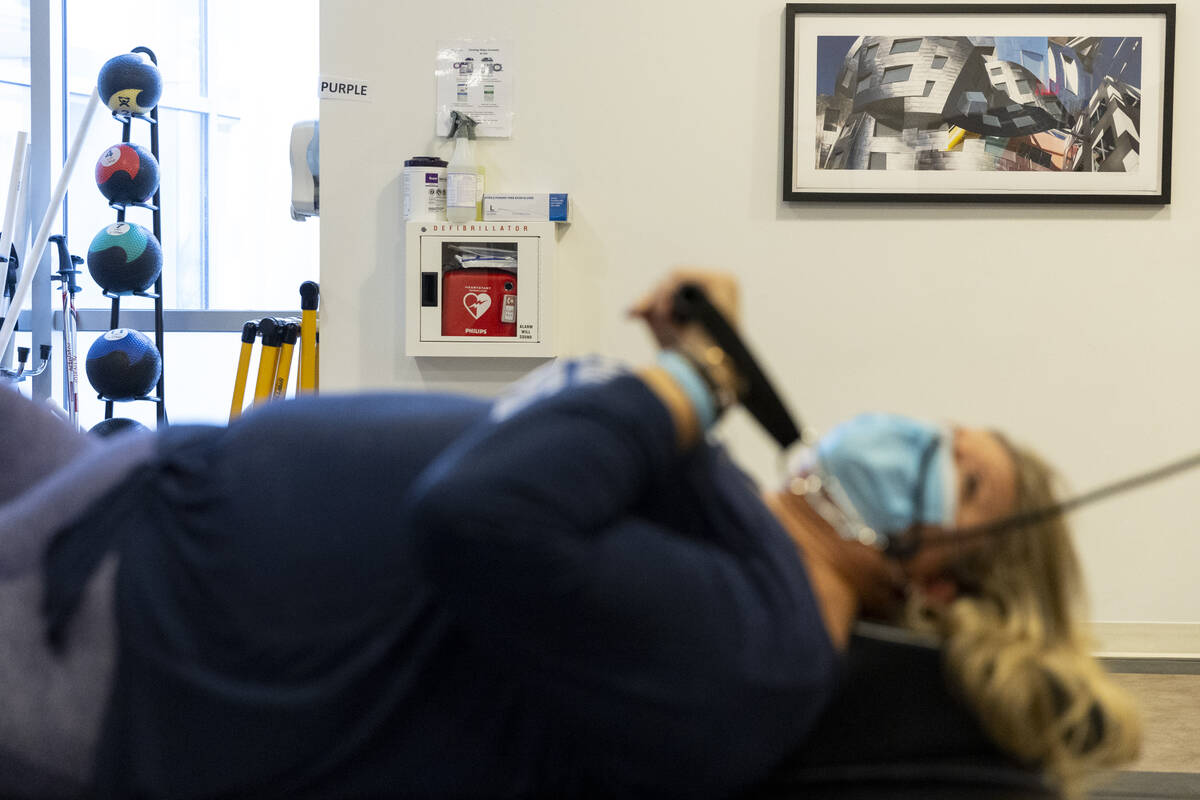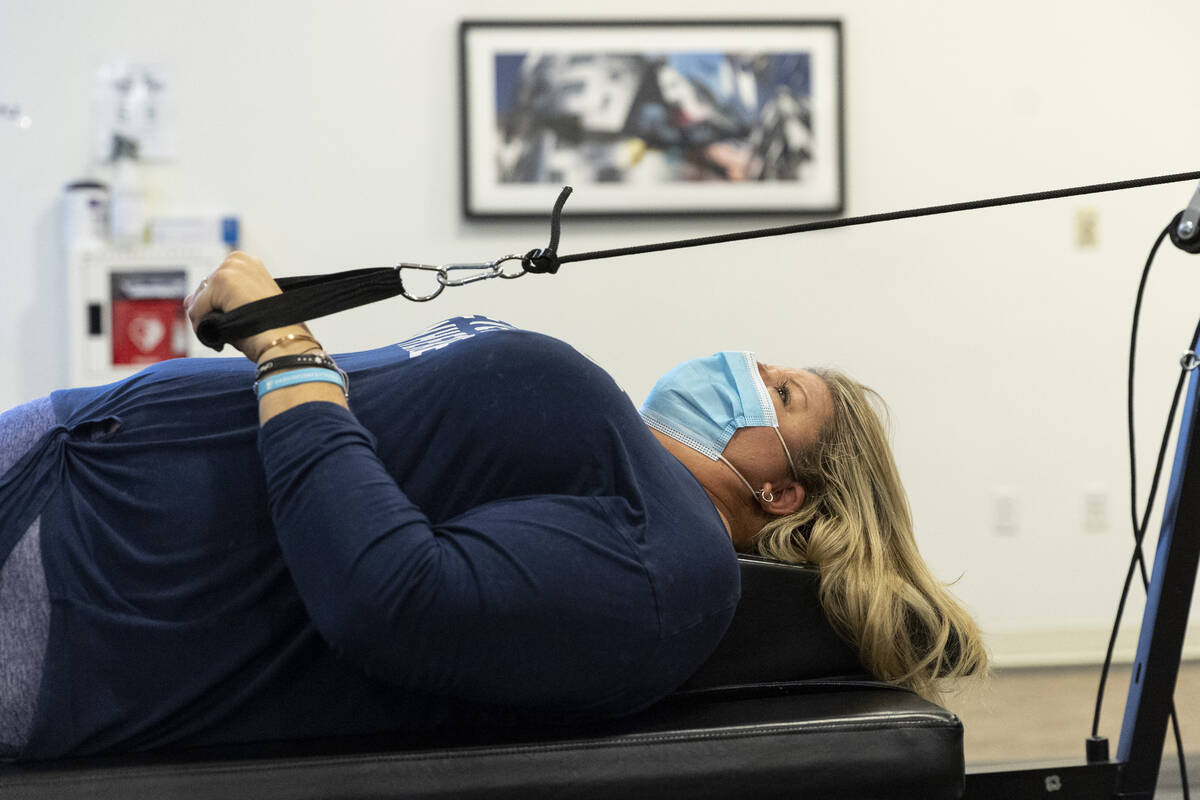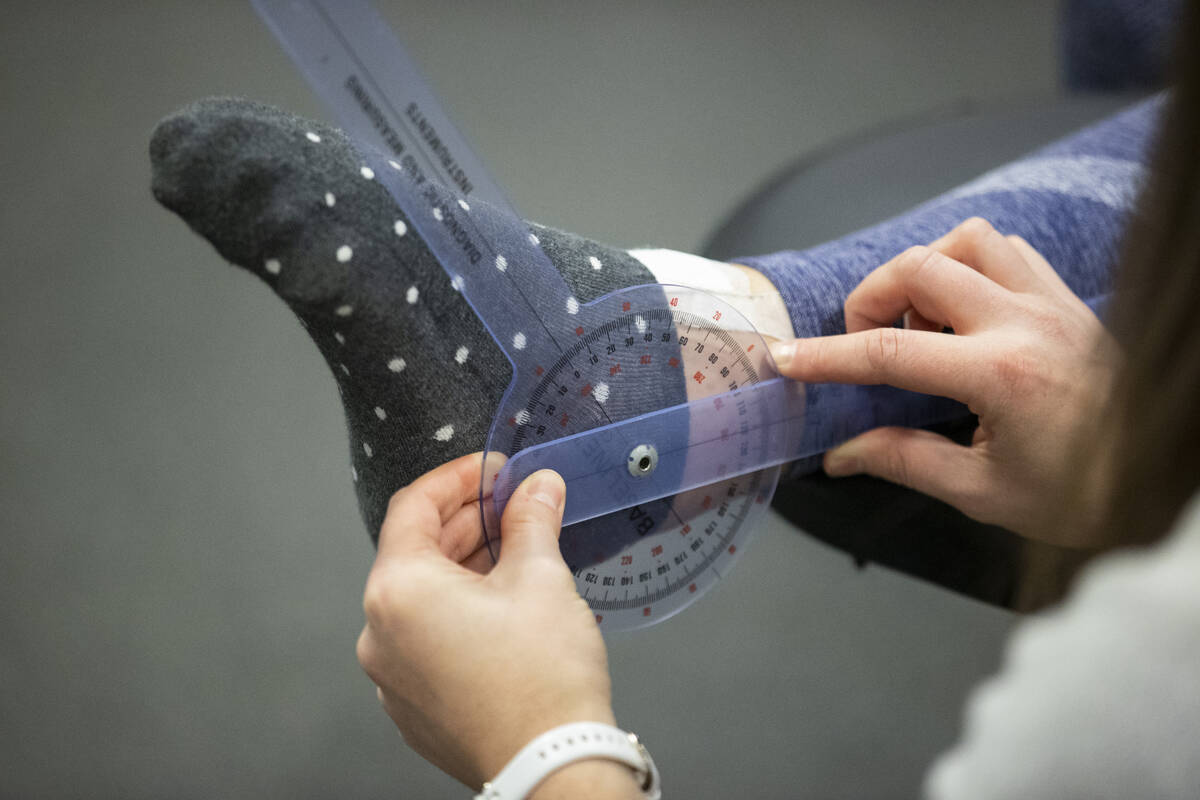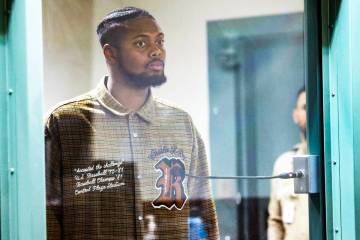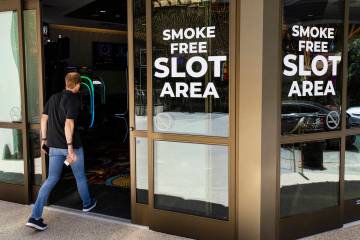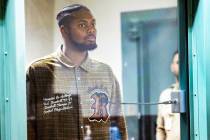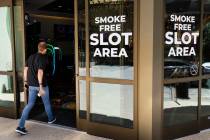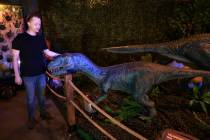Lou Ruvo Center ‘saved my life twice,’ woman says
Gwen Vaughn took care of her mother with Parkinson’s at home until the disease progressed to where Nancy needed to enter a memory care facility.
Vaughn saw Parkinson’s slowly rob her mother of her memory and ability to talk. When she herself was then diagnosed with the disease at age 48, she was shocked.
“I thought the universe would never be this cruel,” said Vaughn, who had also taken care of a grandmother with ALS, amyotrophic lateral sclerosis, another progressive neurodegenerative disease.
“The dementia was the part that terrified me,” she said about her diagnosis.
While still her mother’s caregiver, she was thrown a lifeline by the Cleveland Clinic Lou Ruvo Center for Brain Health in downtown Las Vegas. When she brought her mother to the clinic for a luncheon, a staff member marched her upstairs to a support group meeting for caregivers of patients with dementia.
That group became her tribe. “These people were the wealth of information that everyone should have when they start the journey,” she said.
She was so stressed she cried through the first four sessions. “The first time they saved my life was by putting me in that support group,” she said about the Ruvo Center.
When Vaughn developed an eyelid twitch and a slight tremor in her left hand several years ago, her regular doctors, including a neurologist, dismissed the possibility that it could be the start of Parkinson’s. But after an evaluation at the Ruvo Center two years ago, doctors there delivered the devastating diagnosis.
There is no cure for Parkinson’s, which causes unintended and uncontrollable movements, such as shaking, stiffness and difficulty walking. Some people with Parkinson’s may experience changes in cognitive function, such as problems with memory and focus, according to the National Institutes of Health.
As the disease progresses, some may develop Parkinson’s dementia, which causes severe memory and thinking problems.
Center of Excellence
In June, the Ruvo Center was named a Parkinson’s Foundation Center of Excellence.
The designation refers to “a medical center with a specialized team of neurologists, movement disorder specialists, rehab professionals, mental health professionals and others with deep expertise in the latest PD medications, therapies and research to provide the best care,” according to the foundation.
The Parkinson’s Foundation Center of Excellence network is made up of 51 leading medical centers around the world, with 37 based in the U.S., according to the foundation’s website. The Ruvo Center is the only facility in Nevada with the designation.
For patients at a Center of Excellence, “there’s no shortage of evidence how much more it is likely they will have the accurate diagnosis and treatment,” said Dr. Zoltan Mari, who leads Ruvo’s Parkinson’s program.
The staff at such a center will have had more in-depth training and experience in movement disorders, he said. This gives them greater familiarity with the most recent diagnostic tests and knowledge of how to interpret them.
Parkinson’s can start insidiously and be very hard to diagnose. There are no simple blood or lab tests to diagnose non-genetic cases of Parkinson’s.
Some cases of Parkinson’s can be traced to specific genetic mutations, as was the case for Vaughn’s mother, who died in June. But Vaughn herself does not have the mutations, she said.
The treatments for Parkinson’s are complex, and one size does not fit all, Mari said. Medications need to be customized for the individual patient.
With a focus on research, a Center of Excellence also can offer opportunities to patients to participate in clinical trials not available in other settings.
The Ruvo Center has “an extremely dedicated team,” said Kristin Wallock, senior director of clinical affairs for the Parkinson’s Foundation.
“They continuously support people with PD and their care partners throughout all stages of the disease by offering no-cost, educational lunch and learns weekly, music and art programs, therapeutic services, and monthly support groups,” Wallock said.
‘It saved my life twice’
Vaughn said she is now on medication and receiving physical and occupational therapy at the Ruvo Center.
She has trouble with balance, but it has been months since she has fallen, she said.
Tremors in both her hands make certain everyday tasks difficult. In occupational therapy, she expected to learn new ways to do things like apply mascara — which she did learn. But she also has learned how to deal with her anger over the diagnosis.
Music therapy, which helped her mother cope with the disease, is now helping her. Vaughn created a playlist to raise her mood that includes upbeat selections such as hit “Good as Hell” by singer and rapper Lizzo.
She has channeled her energy into volunteering, raising $10,000 for the Parkinson’s Foundation. She also helps to review grant requests for the foundation.
“I’m well into acceptance at this point,” she said.
About the Ruvo Center, she said, “It saved my life twice.”
Contact Mary Hynes at mhynes@reviewjournal.com or 702-383-0336. Follow @MaryHynes1 on Twitter.



